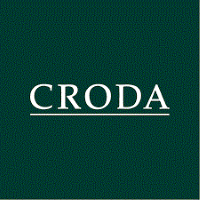|
**Haftungsausschluss: Der Text wurde mit Hilfe einer KI zusammengefasst und übersetzt. Für Aussagen aus dem Originaltext wird keine Haftung übernommen!**
Here’s a 600-word summary and translation of the Simply Wall St article about Croda International, followed by the German translation:
**Summary (600 words)**
This article from Simply Wall St analyzes recent shifts in the fair value target for Croda International (LSE:CRDA), a specialty chemical company. The fair value has decreased slightly from £34.62 to £34.46, reflecting evolving analyst sentiment and a cautious outlook.
**Key Changes Driving the Fair Value Adjustment:**
* **Analyst Revisions:** Several analysts have adjusted their price targets. Berenberg raised its target to 3,300 GBp, while Barclays lowered its target to 3,100 GBp. Citi and Deutsche Bank also adjusted their targets downwards, primarily due to concerns about near-term growth and overall valuation.
* **Bullish Factors:** Despite the overall downward trend, some analysts remain optimistic. Berenberg, Barclays and Morgan Stanley raised their price targets due to confidence in Croda’s growth potential, execution, and cost control measures. They also believe activist investor pressure could be a catalyst for improved performance.
* **Bearish Concerns:** The primary concern driving the lower fair value is apprehension regarding Croda’s growth prospects, particularly in light of sector volatility and potential commoditization pressures. Analysts are questioning whether the current share price adequately reflects the company’s positive momentum.
**Financial Forecast Updates:**
The following key financial metrics have also been adjusted:
* **Discount Rate:** Increased slightly from 7.71% to 7.89%.
* **Revenue Growth Expectations:** Decreased marginally from 4.78% to 4.76%.
* **Net Profit Margin:** Improved marginally, rising from 13.05% to 13.06%.
* **Future P/E Ratio:** Remains essentially unchanged at 24.18x to 24.19x.
**Croda’s Guidance and Future Outlook:**
Croda International issued its fourth-quarter and full-year 2025 earnings guidance, anticipating a seasonal dip in sales but projecting continued strong growth alongside cost savings. The company is forecasting an adjusted profit before tax between £265 million and £295 million at constant currency, reaffirming its full-year financial guidance.
**The “Narrative” Concept:**
Simply Wall St emphasizes a “Narrative” approach to investing, connecting financial data with the company’s story – including factors like activist investor influence, sustainable chemicals leadership, and expansion into emerging markets. The narrative helps investors understand potential growth drivers and risks. The article highlights the importance of tracking key risks, such as pricing pressure, regulatory shifts, and potential restructuring challenges.
**Important Disclaimer:**
Simply Wall St clarifies that their analysis is based on historical data and analyst forecasts, utilizing an unbiased methodology. They emphasize that this is *not* financial advice and the article shouldn't be considered a buy or sell recommendation. They also state they hold no position in any of the stocks mentioned.
**German Translation (approx. 600 words)**
**Zusammenfassung: Croda International – Aktuelle Einschätzung und Wertentwicklung**
Dieser Artikel von Simply Wall St analysiert kürzliche Veränderungen des Fair Value Ziels für Croda International (LSE:CRDA), ein Spezialchemieunternehmen. Das Fair Value ist leicht gesunken von £34,62 auf £34,46, was sich auf sich ändernde Analystenmeinungen und eine vorsichtige Einschätzung bezieht.
**Wesentliche Veränderungen, die den Wertanpassung treiben:**
* **Analysten-Revisionen:** Mehrere Analysten haben ihre Kursziele angepasst. Berenberg erhöhte sein Ziel auf 3.300 GBp, während Barclays sein Ziel auf 3.100 GBp senkte. Citi und Deutsche Bank passten ebenfalls ihre Ziele herab, hauptsächlich aufgrund von Bedenken hinsichtlich der kurzfristigen Wachstumsaussichten und der Gesamtwertentwicklung.
* **Bullische Faktoren:** Trotz des allgemeinen Rückgangs bleiben einige Analysten optimistisch. Berenberg, Barclays und Morgan Stanley erhöhten ihre Kursziele aufgrund des Vertrauens in Crodas Wachstumspotenzial, die Ausführung und die Kostenkontrolle. Sie glauben auch, dass der Druck von Aktivinvestoren eine Katalyse für eine verbesserte Performance darstellen könnte.
* **Bedenken in Bärenstellung:** Die Hauptsorge, die den niedrigeren Fair Value treibt, ist die Besorgnis hinsichtlich Crodas Wachstumsaussichten, insbesondere im Hinblick auf die sektorale Volatilität und mögliche Belastung durch die Kommodifizierung. Analysten hinterfragen, ob der aktuelle Aktienkurs das positive Momentum des Unternehmens angemessen widerspiegelt.
**Finanzprognosen-Aktualisierungen:**
Die folgenden wesentlichen Finanzkennzahlen wurden ebenfalls angepasst:
* **Zinsgewinnvorgabe:** Leicht erhöht von 7,71 % auf 7,89 %.
* **Erwartungen für das Umsatzwachstum:** Marginal gesenkt von 4,78 % auf 4,76 %.
* **Nettoergebnismarge:** Hat sich leicht verbessert und stieg von 13,05 % auf 13,06 %.
* **Zukünftiges KGV:** Bleibt im Wesentlichen unverändert bei 24,18x auf 24,19x.
**Crodas Führung und Zukunftsaussichten:**
Croda International gab seine Prognose für das vierte Quartal und das Gesamtjahr 2025 bekannt und erwartete einen saisonalen Rückgang der Umsätze, aber prognostizierte weiterhin starkes Wachstum zusammen mit Kosteneinsparungen. Das Unternehmen sieht einen angepassten Gewinn vor Steuern zwischen 265 Mio. GBP und 295 Mio. GBP unter Berücksichtigung eines konstanten Wechselkurses. Das Unternehmen hat seine jährliche Finanzprognose für das Geschäftsjahr 2025 bestätigt und sein Vertrauen in seine laufenden Leistungsziele bekräftigt.
**Der “Narrative”-Konzept:**
Simply Wall St betont einen “Narrative”-Ansatz für Investitionen, der Finanzdaten mit der Geschichte des Unternehmens – einschließlich Faktoren wie der Einfluss von Aktivinvestoren, der Führung bei nachhaltigen Chemikalien und der Expansion in Schwellenländer – verknüpft. Die Narrative hilft Investoren, Wachstumstreiber und Risiken zu verstehen. Der Artikel hebt die Bedeutung hervor, wichtige Risiken zu verfolgen, wie z. B. Preisdruck, regulatorische Veränderungen und potenzielle Restrukturierungsprobleme.
**Wichtiger Haftungsausschluss:**
Simply Wall St klärt, dass ihre Analyse auf historischen Daten und Analystenprognosen basiert, wobei eine unvoreingenommene Methodik verwendet wird. Sie betonen, dass dies *keine* Finanzberatung ist und der Artikel nicht als Kauf- oder Verkaufsratschlagung betrachtet werden sollte. Sie geben außerdem an, dass sie keine Position in den genannten Aktien halten. |
|
**Haftungsausschluss: Der Text wurde mit Hilfe einer KI zusammengefasst und übersetzt. Für Aussagen aus dem Originaltext wird keine Haftung übernommen!**
**Zusammenfassung (ca. 500 Wörter)**
Dieser Artikel von Simply Wall St analysiert Croda International Plc (CRDA), ein Mid-Cap-Spezialchemieunternehmen, das an der London Stock Exchange notiert ist. Trotz einer jüngsten Steigerung des Aktienkurses um mehr als 10 % hat der Aktienkurs noch nicht seine Jahreshöchststände erreicht, was eine Untersuchung vorsieht, ob es sich lohnt, jetzt zu kaufen.
Das Hauptargument ist, dass Croda derzeit fair bewertet ist. Basierend auf ihrem Bewertungmodell handelt sich der Aktienkurs um etwa 5,5 % unter seinem intrinsischen Wert. Dies deutet auf einen angemessenen Preis für Investoren hin. Ebenso hebt das Unternehmen die niedrige Beta von Croda hervor, die eine reduzierte Volatilität im Vergleich zum breiteren Markt anzeigt, was ein positiver Faktor ist.
Der Schlüssel-Bull-Punkt ist das prognostizierte Gewinnwachstum von Croda. Analysten erwarten einen erheblichen Anstieg von 79 % in den nächsten zwei Jahren. Dieser erwartete Anstieg des Gewinns wird voraussichtlich zu höherer Cashflow führen, was wiederum den Wert der Aktie erhöhen wird. Dies ist ein überzeugendes Potenzial für Investoren, die eine „günstige“ Aktie mit hohem Wachstum suchen.
Der Artikel richtet sich an zwei potenzieller Investor-Typen: bestehende Aktionäre und potenzielle Investoren. Für bestehende Aktionäre spiegelt der optimistische Wachstums-Ausblick bereits im aktuellen Aktienkurs wider, was bedeutet, dass sie möglicherweise nahe am fairen Wert handeln. Es betont jedoch die Bedeutung der kontinuierlichen Bewertung anderer Faktoren, insbesondere der finanziellen Stärke des Unternehmens und potenzieller Schwankungen.
Für potenzielle Investoren rät der Artikel zur Vorsicht und deutet an, dass der Kauf zum aktuellen Zeitpunkt möglicherweise nicht optimal ist. Der Aktienkurs, der nahe am fairen Wert ist, deutet auf geringe Aufwärtspotenzial hin. Dennoch bieten die ermutigenden Wachstumsprognosen eine Begründung für eine weitere Untersuchung, insbesondere mit Blick auf die Bilanz des Unternehmens und die Möglichkeit, ob ein Preisrückgang eine bessere Einstiegsstelle bietet.
Der Artikel räumt die Bedeutung der „Gewinnqualität“ sowie die breiteren Anlage-Risiken ein. Es wird auch ein einzelnes identifiziertes Anlage-Risiko im Zusammenhang mit Croda International genannt. Wichtig ist, dass Simply Wall St klärt, dass diese Analyse auf historischen Daten und Analysten-Prognosen basiert und eine unvoreingenommene Methodik verwendet. Es handelt sich nicht um Finanzberatung und berücksichtigt nicht die individuellen Umstände der Investoren. Die Analyse berücksichtigt möglicherweise nicht die neuesten, preisempfindlichen Unternehmensankündigungen.
|
|
**Haftungsausschluss: Der Text wurde mit Hilfe einer KI zusammengefasst und übersetzt. Für Aussagen aus dem Originaltext wird keine Haftung übernommen!**
**Zusammenfassung (600 Wörter)**
Dieser Artikel, veröffentlicht von Simply Wall St, analysiert aktuelle Updates bezüglich Croda International Plc (LSE:CRDA), einem Spezialchemieunternehmen. Der Hauptauszug ist eine leichte Revision der Fair-Value-Schätzung für das Unternehmen, die derzeit bei £34,62 pro Aktie liegt, die durch positives Analysten-Kommentierungs und aktualisierte Prognosen motiviert ist.
**Aktuelle Analystenstimmung:** Die Analystenlandschaft rund um Croda ist teilweise gespalten. Während mehrere Firmen ihre Kursziele angehoben haben, spiegelt dies das Vertrauen in die Unternehmensausführung und das Wachstumspotenzial wider, bleiben andere vorsichtig. Citi senkte beispielsweise kürzlich sein Kursziel und behielt eine neutrale Bewertung bei, aufgrund von Bedenken hinsichtlich der Bewertung und kurzfristiger Risiken.
**Bullische Faktoren:** Mehrere Analysten haben Croda angehoben, wobei sie starke Umsätze im Jahresverlauf und erwartete Kosteneinsparungen hervorheben. Berenberg und Barclays haben beispielsweise ihre Kursziele angehoben und die kontinuierliche Ausführung und das Wachstumspotenzial von Croda hervorgehoben. Deutsche Bank und Morgan Stanley haben ebenfalls ihre Kursziele angehoben und die Stärke und das Wachstumspotenzial des Unternehmens anerkannt.
**Bärische Bedenken:** Die vorsichtige Haltung stammt hauptsächlich von Citi, die Bedenken hinsichtlich der Bewertung und potenzieller kurzfristiger Risiken äußert. Mehrere andere Analysten halten an Bewertungen von “Hold” oder “Equal Weight” fest, was anhaltende Bedenken hinsichtlich der Industrialisierung – die zunehmende Ähnlichkeit von Produkten – und der Risiko-Ertrags-Balance des Unternehmens widerspiegelt.
**Finanzprognosen und Fair-Value-Revision:** Die Fair-Value-Schätzung stieg leicht von £34,54 auf £34,62 pro Aktie. Dies spiegelt eine gesenkte Abzinsungsrate (7,79 % auf 7,71 %) und einen geringen Anstieg der Umsatzwachstums-Erwartungen (4,75 % auf 4,78 %) wider. Es wird erwartet, dass die Gewinnmarge leicht sinkt (13,16 % auf 13,05 %) und das Price-to-Earnings (P/E) Verhältnis geringfügig steigt (24,01x auf 24,18x).
**Croda’s Ausblick und strategischer Fokus:** Croda’s Prognose für das vierte Quartal und das gesamte Geschäftsjahr 2025 deutet auf einen erwarteten bereinigten Gewinn vor Steuern zwischen £265 Millionen und £295 Millionen hin (in konstanter Währung). Dies wird von Kunden-Liquiditätsmanagement zum Jahresende sowie von der Bestätigung der Prognose auf der Grundlage robuster Verkäufe und erwarteter Kosteneinsparungen beeinflusst. Das Unternehmen konzentriert sich strategisch auf nachhaltige, biobasierte Chemikalien, grüne Innovation, Expansion in Schwellenmärkte durch Partnerschaften und die Bewältigung potenzieller Risiken wie Preisdruck, operative Herausforderungen und regulatorische Unsicherheit.
**Simply Wall St’s Ansatz:** Simply Wall St betont einen “Narrative”-Ansatz für Investitionen, der Finanzprognosen mit der Geschichte eines Unternehmens integriert. Die Plattform bietet automatisierte Updates auf der Grundlage von Nachrichten und Unternehmensergebnissen, um Investoren dabei zu unterstützen, Kauf- oder Verkaufs-Signale zu erkennen, wenn sich der Fair-Value aufgrund von Veränderungen der Aktie ändert. Sie hebt wichtige Risiken und Chancen rund um Croda hervor und ermutigt zu einer informierteren Anlageentscheidung.
|





